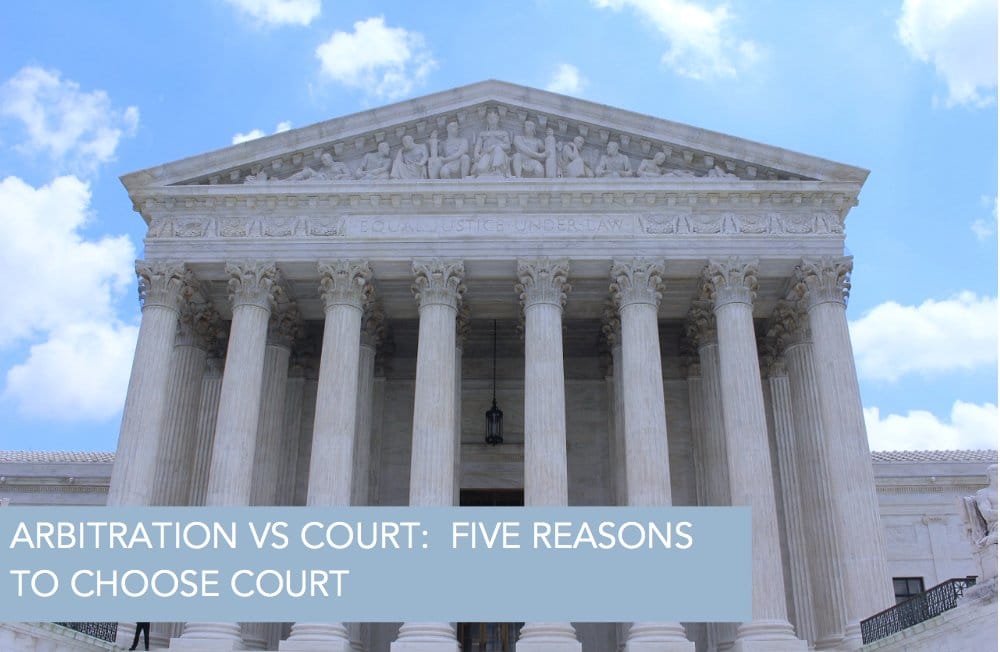

Updated on August 10, 2021
At Schorr Law, our experienced real estate attorneys are often faced with the task of deciding whether to pursue a matter in arbitration or in Court. We tend to favor resolving real estate matters in Court, and here are five reasons why:
In arbitration you actually pay the arbitrator much like you would pay a lawyer – on an hourly basis. This means that there is an added expense to arbitrate your matter.
This can be a good and a bad factor for resolving a dispute. The good part is that the dispute is forever resolved upon the arbitrator’s decision. That bad, of course, is if the arbitrator chooses to ignore rules of law, evidence or makes a wholly unsupported decision you have no way to attack the decision.
At Schorr Law, we pride ourselves on our extensive knowledge of rules and procedure. This helps us win at court. In arbitration, the arbitrator has discretion regarding whether to do things as simple as applying the rules of evidence. There is a long history of legal precedent in the United States developed through the legislature and the courts – it seems odd to give the arbitrator discretion on whether to follow that precedent.
In court, if you settle a case on the day of trial the judge typically congratulates the parties and is thankful that you have resolved the matter without using valuable court time. In other words, the court is thrilled and is happy to have found time in its calendar. In arbitration, however, many arbitration services have non-refundable fees and will even charge you for the estimated length (or pre-paid) days scheduled for arbitration. That means that if you settle a 5 day arbitration on the day the arbitration is set to begin you could still be responsible for 5 days of the arbitrator’s time.
Win or lose, after an arbitration the prevailing party has to petition the court to confirm the arbitrator’s award. This requires filing a petition with the court, paying an initial filing fee and preparing an actual motion to confirm the arbitration award. Therefore, in the end you wind up in court anyway in order to obtain your judgment.
The decision on whether to go to court or agree to arbitrate is much more nuanced then these simple 5 points above. At Schorr Law, our real estate litigation attorneys have extensive experience arbitrating and litigating all types of real estate matters. No matter what the venue, we have likely been through the process and know the ins and outs of how to best position your case for success regardless of whether you are arbitrating or litigating it in court. By knowing the upside and downside of each we can use our knowledge to help our clients gain the best results possible.
To inquire about a consultation, call us at (310) 954-1877, email at [email protected], or you can fill out the contact box on the side of this page.